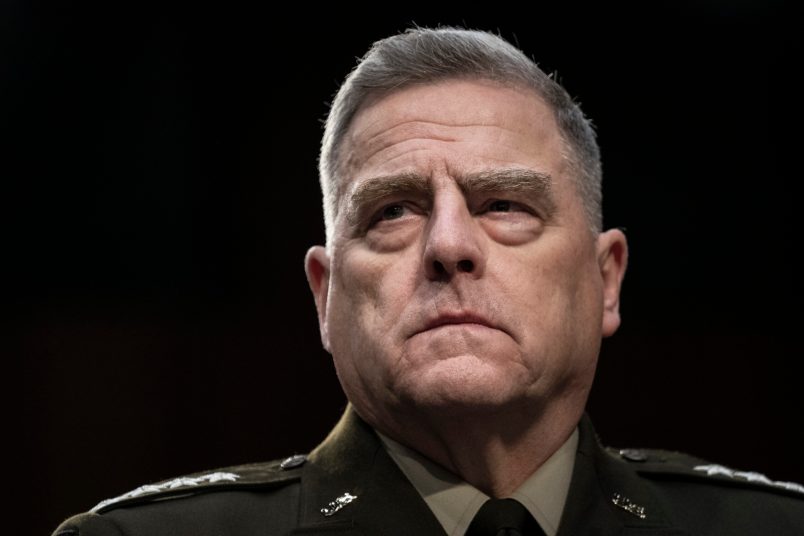Joint Chiefs of Staff Chairman Gen. Mark Milley assured two House Democrats Friday that he saw no role for the military in monitoring polling places or taking part in other aspects of the electoral process.
The comments —made in written answers supplied to Reps. Elissa Slotkin (D-MI) and Mikie Sherrill (D-NJ), both members of the Armed Service Committee — come as President Trump has suggested that he would send law enforcement, such as U.S. Attorneys and sheriffs, to monitor voting sites. Trump has also said that any election he loses would be a “rigged” one.
Noting the “qualified officials” who, under state and U.S. law, oversee the electoral process, Milley said that, “We follow the rule of law and have done so with regard to past elections, and will continue to do so in the future.”
“I do not see the U.S. Military as part of this process; this is the responsibility of Congress, the Supreme Court and components of the Executive Branch,” Milley said in the written response, which was first reported by the AP.
Responding to another set of questions put forth by the lawmakers about the need for a peaceful transition in power, Milley said that, “In the event of a dispute over some aspect of the elections, by law U.S. courts and the U.S. Congress are required to resolve any disputes, not the U.S. Military.”
“I foresee no role for U.S. Armed Forces in this process,” he said.
Slotkin and Sherrill’s written questions listed several examples of what they described as “politicization of the U.S. military.” They included Trump’s deployment of the military to the U.S.-Mexico border just before the 2018 election, as well as the involvement of the National Guard in dispersing peaceful protestors outside the White House just before President Trump took a photo-op by a nearby trip. Milley had previously said he regretted appearing in those photos.
The lawmakers asked if Milley agreed that the military should not be used for the President’s personal political gain and whether he would refuse orders for military action meant to “distract the American public instead of protect American security.”
“I believe deeply in the principle of an apolitical U.S. Military,” he said, later adding that he will comply with all “lawful orders” but not with an “unlawful order.”
Read the full set of written questions and answers below:







An “apolitical” military. It seems like too many years ago that such an assurance wasn’t necessary.
It doesn’t make me feel all that great that they felt the need to say this publicly.
“I believe deeply in the principle of an apolitical U.S. Military,” he said, later adding that he will comply with all “lawful orders” but not with an “unlawful order.”… erm, who gets to decide the difference?
This…just gives me the chills…Like we are becoming a kind of United States of Nicaragua…
Well, I’m reassured. Maybe they should provide further reassurance that this will continue to be policy even if the Reichstag is set aflame by undesirables.